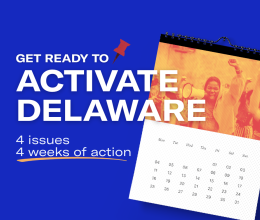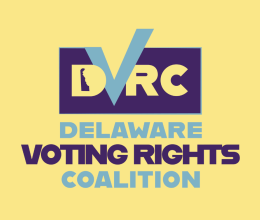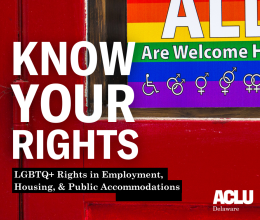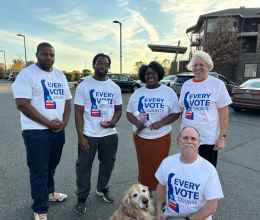Voting Rights
Because of deficient election procedures in the Town of Slaughter Beach, people entitled to vote were prevented from doing so in the town’s recent election. After the state Elections Commissioner agreed but stated the law wasn’t broken, we negotiated a charter amendment and ordinance changing the town’s election procedures, eliminating several practical barriers to voting. The town now has absentee voting, and will allow it to be done in a manner that is very similar to early voting. The town also changed the process for determining who may vote, to make those determinations more accurate.
Police Misconduct
With our two Smyrna cases resolved, ACLU-DE is now focusing on complaints about other police forces. Discovery is moving forward in our suit against Dover and one of its police officers for needless, excessive force—resulting in a broken jaw—used on a man being arrested on charges that were later dropped, and the manner in which police management dealt with the problem. We are also investigating serious claims of misconduct by two other police forces.
Transgender Rights
The name change process is normally quick and easy, with name changes being granted as long as there is no reason to believe the petitioner has an improper purpose—usually avoiding a legal obligation. But the Court of Common Pleas has been requiring transgender petitioners to submit medical evidence before their petitions will be heard, and one of the judges asks applicants legally irrelevant, personal questions in open court before granting the name changes. Those actions are prohibited by state and federal law. A transgender petitioner objected to these practices and contacted us after she gave the court a letter from her therapist. We filed a motion to strike the letter from the court record, in order to obtain a ruling that would stop both practices. The court granted our motion and signed an order stating that a petitioner's statement in a petition for a name change consistent with their gender identity does not provide a reason for the court to request medical information from the petitioner.
Freedom of Religion
The Smyrna School District crossed the line barring governmental endorsement of religion when, during morning announcements, the high school principal invited students to participate in what should be an independent, student-run religious activity—See You at the Pole—where students gather to pray at the school’s flag pole early in the morning. After receiving complaints from ACLU-DE, the District agreed to avoid any future violation by having morning announcements done next year by students.
Preventing Economic Discrimination
After the Red Clay School Board was met with fierce opposition for drawing the attendance zone of a new elementary school being opened in the suburbs to include a low-income apartment complex on the edge of Wilmington, we sent a letter and spoke at the November board meeting, urging the district not to retract its decision and explaining why it should not be concerned about the appeal taken from its decision to the State Board of Education. The School Board did not retract its decision and the appeal was dismissed.
Student Access to School Library Materials
Consistent with the letters we and national partner organizations sent the school board, Appoquinimink rejected a proposed plan that would have required school librarians to designate all library materials that contain mature or adult themes as “adult content,” would have given parents the right to prevent the libraries from letting their children access those materials, and would have prevented teachers from assigning materials with adult content to students absent written parental consent. In order to enhance our ability to respond to similar attempts in the future, we have filed a Freedom of Information Request to learn more about the effort at censorship. At press time, Appoquinimink had agreed to provide the documents but had not yet done so.
Racial Discrimination in Municipal Employment
Our challenge to Middletown’s rejection of a request by the NAACP’s MOT Chapter for information about police department hiring, disciplinary and promotion practices resulted in Middletown’s disclosure of most of the requested information. Representatives of the MOT NAACP and others are now meeting regularly with the Middletown officials to address the need for greater diversity in the police force.









